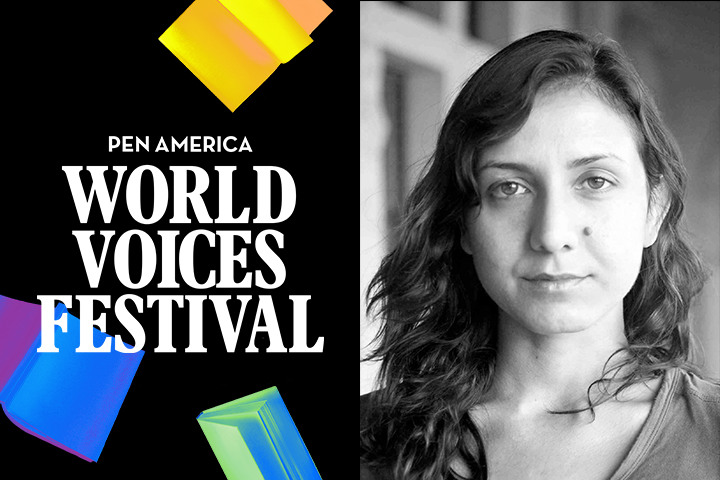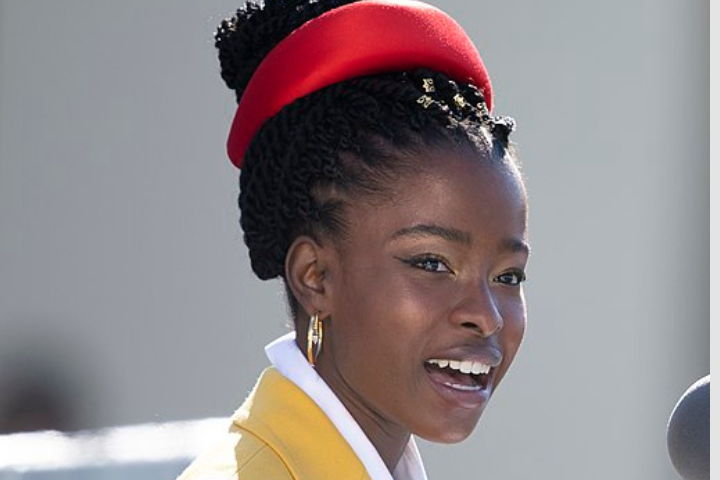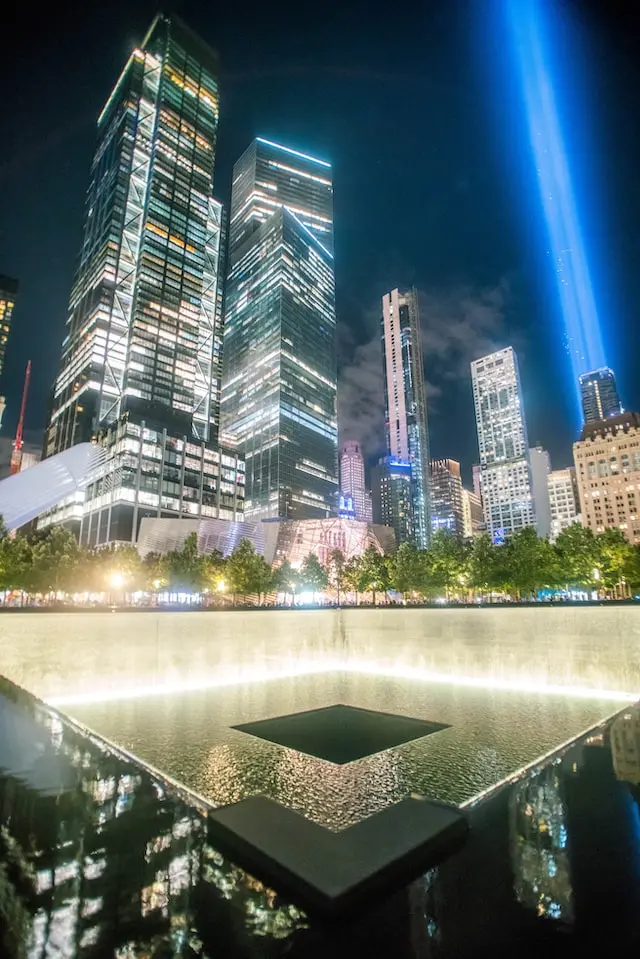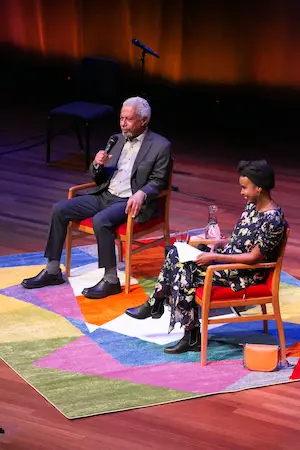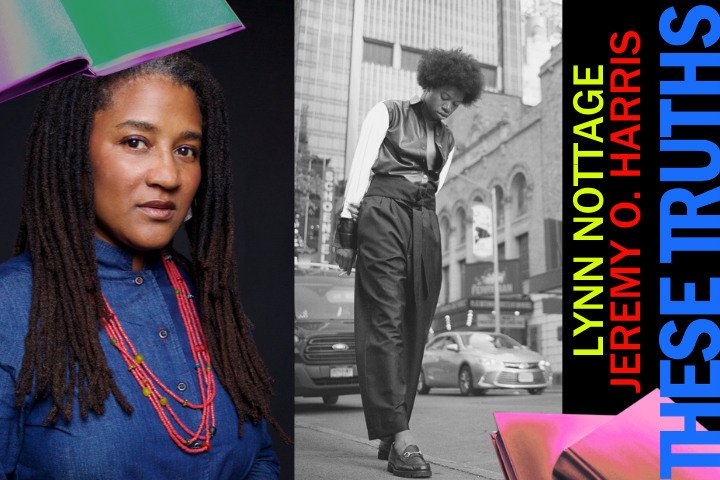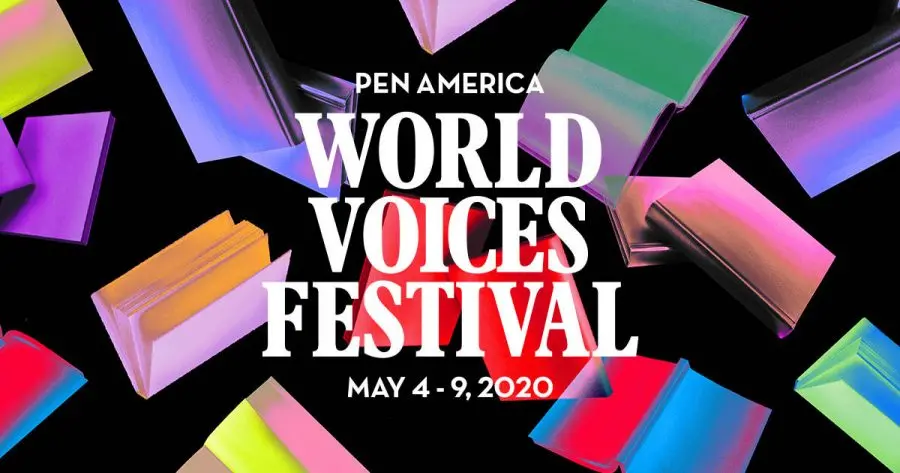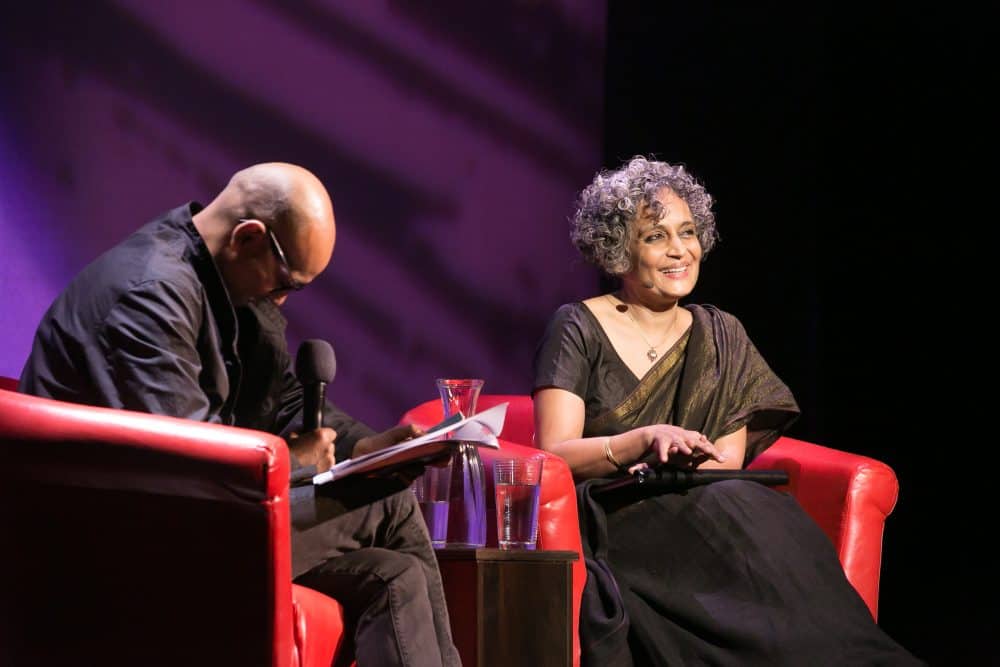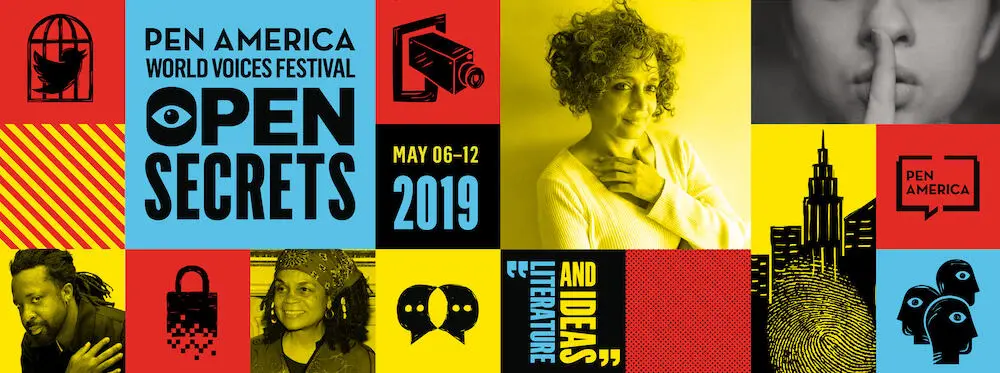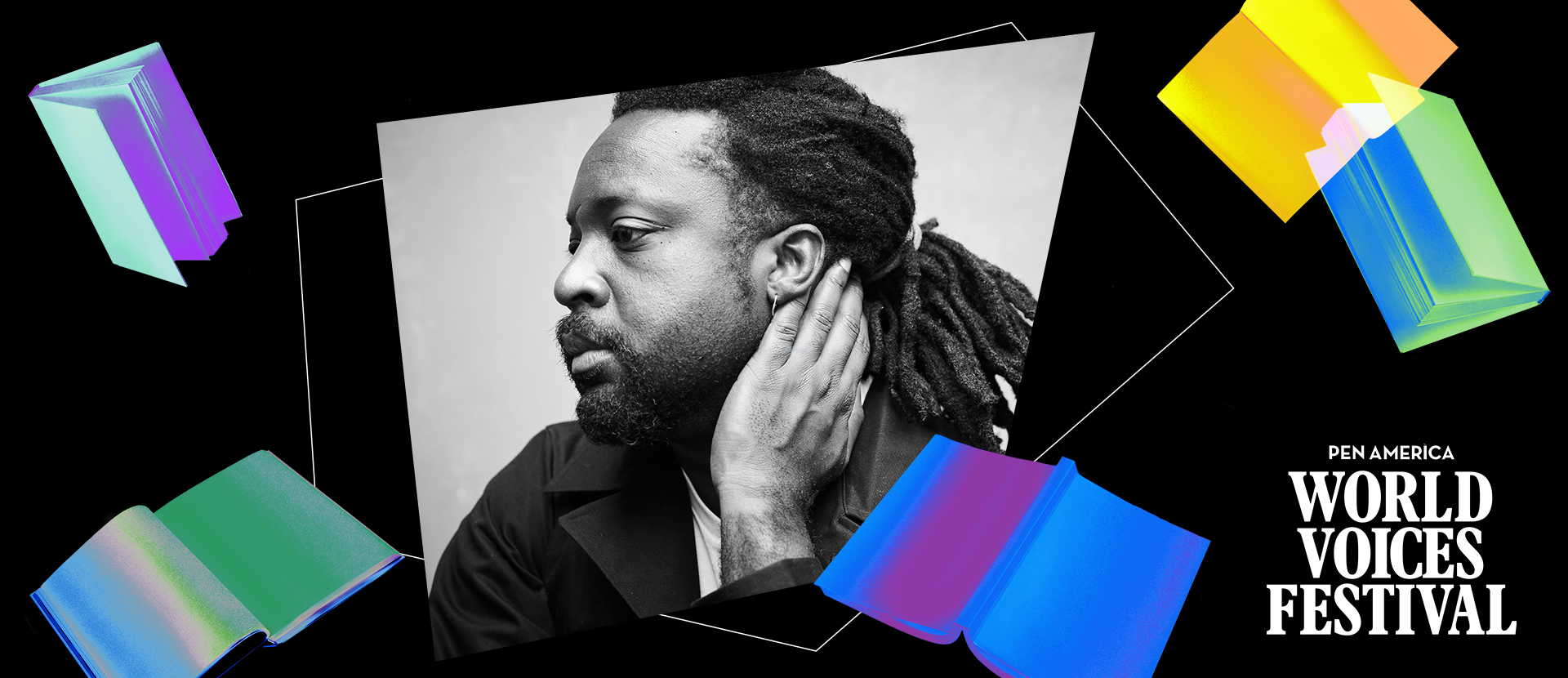
World Voices Festival: Marlon James
By Lisa Tolin
Marlon James remembers visiting New York from Jamaica for his first PEN America World Voices Festival and seeing Jeanette Winterson talking about why she memorizes texts, Mary Gordon talking about faith, and Salman Rushdie talking about being an atheist obsessed with religion.
“I thought it was the most magical thing I’d ever seen, and I thought, this must be one of those places where writers go to live another life,” he said.
James, whose most recent novel, Moon Witch, Spider King, is the second in his Dark Star fantasy trilogy, is guest chair of the 2023 PEN World Voices Festival, returning to a place where the writing life is celebrated, and where writers discuss what it means to be a writer and a force for change.
“There was a sense with the World Voices Festival that a writer or writers can be bigger than who they think they are. And not in terms of popularity, but in terms of discussing how we, through our art, can be forces for good,” he said. “I thought that was something that was really powerful. And I always jump at the chance of being a part of this festival in any capacity.”
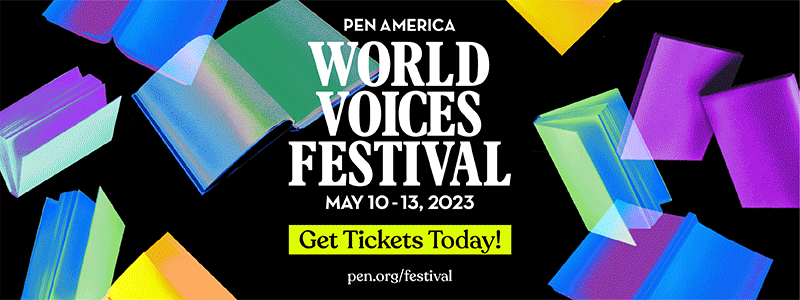
On May 13, James is hosting a fireside chat with Nigerian-British writer Ben Okri, followed by a panel on the second novel with Khaled Hosseini, Garth Greenwell, Alexander Chee, and Elif Batuman.
Your podcast is about reading dead people. Is it a different challenge to do something like the festival and talk to living writers?
Well, I usually don’t talk about living writers because I’m not sure how constructive that is. I remember somebody felt they really needed to tell me everything they felt about my book, and I’m like, that’s great, but that’s not a conversation meant to be had with me. I mean, the worst that’s going to happen is you’re going to tell me something about my book that I can’t change that’s already published. All that does is just give me a complex. Honestly, I know quite a few writers. And one of the things we almost never talk about is our work.
Do you feel like you just need a break from it?
You need a break from it. Also, I’ve come across writers who endlessly talk about their work and none of them are friends of mine, because they’re insufferable. There are people who will be surprised, but there’s actually more to life than writing. There is actually more to life than books. I’ve always found those panels, “the book, where is it going?” I’ve always found those panels hilarious and a little stupid. You know, books have survived plagues, they’ve survived burnings, they’ve survived the Spanish Inquisition, they’ve survived the Crusades, they’re survived McCarthyism – they survive all these things, and we still think we still think a download is going to kill it. Funnily enough, I love talking about other people’s books. I love talking about Shakespeare. I love talking about what I like in a novel. I love talking about Toni Morrison. But I think this sort of hand- wringing about where we think our books are going is totally useless.
What do you think the role of a writer is in creating change?
I think the role of a writer in creating change is to write. Which is not to say activism isn’t important, but a lot of times when writers are being attacked, they’re being attacked simply for being. I don’t think Gender Queer is out there trying to indoctrinate anybody. Gender Queer is just trying to tell somebody’s life as it is. Sometimes the fight is simply to express. And I think even writing in itself is an act of free will. And writing in itself is an act of self determination. And there are lots of forces particularly in the world right now, who are against both of those things.
“Sometimes the fight is simply to express. And I think even writing in itself is an act of free will. And writing in itself is an act of self determination. And there are lots of forces particularly in the world right now, who are against both of those things.”
I also think, though, as writers in the world, one role we have is to speak truth to power. And that can happen in any sort of way. Are You There God, It’s Me, Margaret spoke truth to power even if people sometimes don’t realize it immediately. But there are 12, 13, 14, 15 year olds for the past 20, 30, 40 years whose lives are being saved, because this voice spoke to them. That is something that is under threat. Judy Blume’s works have always been under threat. So, I think just by the nature of being a writer, you’re already a force of change.
You’ve mentioned Toni Morrison and Gender Queer and the past threats that books have survived. How do you think they survive those threats?
I mean yes, books survived all of these things, but the damage was done. And, you know, Gender Queer may survive book bannings, but that 14-year-old Black queer person in Mississippi is probably going to take their life. You know, the damage will be done, and I think that’s why we still need to fight this. A lot of these book bannings are just the latest attempt to erase queerness and Blackness, and heaven help you if it’s the same book.
“Gender Queer may survive book bannings, but that 14-year-old Black queer person in Mississippi is probably going to take their life. You know, the damage will be done.”
We’re allowing people to take away the right to freedom of expression under this guise that parents should have a choice in what their children read. That may sound good on paper; it’s one of the most ludicrous things ever said. Parents should not have a choice in what their kids read at school. Firstly, what parents read in school, by that time, is anywhere between 20 to 40 years old; a lot of what they read doesn’t make any sense anymore. I actually think that a parent is the absolute worst choice of person to decide what their kids should read. It reads as an attempt by the parents to turn their children into clones of themselves, or they’re trying to make sure their conservative values remain. This idea of restricting education and restricting knowledge, it’s not new. But it’s something that I think we allow it to rear its head a little too much. We have to realize that, you know, this is a fight.
Your first conversation at the festival is with Ben Okri. What made you want to speak to him?
Well, because his work has been a huge influence on me, and also because he’s somebody who, with his writing, tried to engage in a bigger view of the world and dares to write from the perspective that a writer is doing more than just telling stories, and he’s not afraid to run across skepticism because of that. You know, when you read something like The Famished Road, or some of his later works, it’s almost as if he’s trying to do what Stevie Wonder did with Songs in the Key of Life, where works of art dare to be more than just that. Of course, as a young Black writer, writing about realities that are my own, he also serves as an inspiration that the book that’s in your head can be the book that comes down on the page, which is very hard when you’re a Black writer, when you’re a woman, when you’re any sort of minority, when you are told to write in a certain way to appeal to an audience. And he has always stood as a beacon to stay true to yourself.
You’re also hosting a panel about second novels. What do you want to explore?
Well, there are so many debut novelist panels, so many first fiction panels. I’ve seen all of them and I’m kind of just tired of them. I know the pressures, and even the promises that went into writing my second novel are very different from my first. My first novel, like a lot of first time writers, I didn’t know anything about the world of books. And by the time your first novel comes out, you’re probably greatly encouraged or discouraged at the same time. You may enter your next book with a sense of trepidation because your first book was so well received, or you enter it with a different kind of trepidation because your first book wasn’t necessarily well received, that your second novel is going to be your debut in a way. Or you developed an idea about the industry that’s not a great one – certainly, for me, it wasn’t. So the pressure for me, for writing a second novel, was just to work up the spirit or the motivation to actually write one. I’m always curious about the in-between discussions that we don’t have. People talk about first and last; nobody talks about the middle.
Do you feel like the second novel is more challenging than the third, or the fourth, or the fifth?
Having written a third, fourth, and fifth, I don’t think so. I think that the danger I always fall into is I always forget the process of writing a book when I start writing one. I never remember how hard it was writing the previous one. I think different books demand different processes.
Listening to your podcast, you make writing sound like fun. Is it for you?
It is fun! I’m opposed to this idea that writing isn’t fun. Writing is the greatest fun I’ve ever had. I sometimes can’t believe I get to do this. People think fun means easy, and I don’t think those two things are connected at all. I know people who do rock climbing and they get immense fun out of it, and it’s not easy. In fact, sometimes it’s downright life-threatening. They don’t find it easy at all, and it’s is the greatest fun they’ve ever had. And I think that’s the thing about writing, certainly for me. It’s the hardest work I’ve ever done, and it’s the most fun I’ve ever had.
“Writing is the greatest fun I’ve ever had. … It’s the hardest work I’ve ever done, and it’s the most fun I’ve ever had.”
I remember somebody on Facebook put up this ridiculous meme about “writing is like riding a bicycle naked backwards into a flame and it burns and burns.” I just wrote, “then quit, boo.” If it’s so much pressure for you, maybe pick up plumbing. I think writers, sometimes they’re in the presence of writers a little too much. No dancer would say something like that. You know, no painter would say something like that – “it’s the worst horrible feeling and it burns, it burns.” No dancer is gonna talk about “oh my god, my poor toes, my poor toes, they’re hurt, they’re hurt, they’re hurt.” Like, it’s supposed to. Art costs. Art is hard. Art will take its chunk of flesh. Art will make demands of you that you might not be ready to give. But at the same time, it’s like George Clinton said, “funk is its own reward.” You know, your art is its own reward.
Lisa Tolin is Editorial Director of PEN America.

